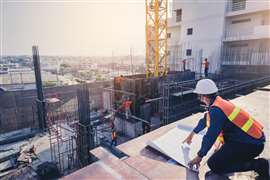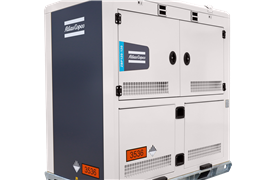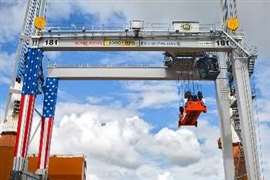China dominates private infrastructure investment
01 August 2024
Private Participation in Infrastructure (PPI) investments totalled US$86 billion during 2023, a 5.8% decrease from the previous year’s record of US$91.3 billion, according to the World Bank’s 2023 annual report, Private Participation in Infrastructure.

However, this decrease in investment was offset by a significant increase in the number of projects, rising from 260 initiatives in 2022 to 322 last year.
Alongside this increase in projects, the number of countries with PPI investment commitments also grew, from 54 in 2022 to 68 in 2023. Notably, countries such as Guinea-Bissau, Libya, Papua New Guinea, São Tomé and Príncipe, and Suriname saw their first PPI investment transactions in over a decade.
When looking at investment as a percentage of national GDP, the top five countries in 2023 were Cape Verde (7.4%), Lao People’s Democratic Republic (6.2%), and Bosnia and Herzegovina (2.0%).
China stood out as the leader in terms of total investment, accounting for 47% of global PPI investment with over US$40.4 billion in 37 projects.
East Asia and the Pacific (EAP) received the largest disbursements, capturing 60% of the global total. EAP saw around US$51.4 billion in PPI investments, a 28% increase from the previous year. Following China, the Philippines was the second-highest recipient, receiving around US$7.5 million with 17 initiatives. These two countries accounted for 93% of PPI resources in the EAP.
Latin America saw the second-highest concentration of private investment in infrastructure, totalling 18% of the global PPI resources. However, the region experienced a significant drop of nearly 35% in volume, decreasing from US$24.3 trillion in 2022 to US$15.8 trillion in 2023. Nevertheless, Latin America and the Caribbean remained the region with the highest investment as a percentage of regional GDP in 2023, at 0.3%.
Brazil led the way with nearly half of the 102 projects registered in the region and 51.7% of the investment amount, committing approximately US$8.1 billion. Globally, Brazil ranked second, contributing 9.5% of total investment commitments in 2023.
Peru was the second-largest contributor in the region, with US$2.7 billion invested in 12 projects, primarily in the energy sector and Argentina ranked third, with US$1.5 billion distributed across seven projects, followed by Colombia with $1.3 billion across nine projects.
In South Asia, the decline was even more significant than in Latin America, with investment levels contracting by 40% to US$8.2 billion. Of this amount, 85% was concentrated in India. In sub-Saharan Africa, investments fell by 22.2%, decreasing from US$4.5 billion in 2022 to US$3.5 billion in 2023.
The Middle East and North Africa (MENA) stood out with a 104% increase to US$2.9 billion, while Europe and Central Asia had a more modest increase of 4% to US$4.1 billion.
Sector trends to energy investment
In a significant shift, investments in the energy sector surpassed those in transport in 2023, reaching US$62.4 billion across 187 projects. In contrast, the energy sector had only secured US$24.4 billion in investment commitments across 129 projects last year. This level of investment in the energy sector has not been seen since 2017.
The transport sector recorded investment commitments of US$13.8 billion across 46 projects in 2023, less than a quarter of the levels of investment committed and half the number of projects that achieved financial close last year. The surge in private infrastructure investment in the transport sector in 2022 was attributed to a few large highway public-private partnership (PPP) projects in China and India. However, this trend did not continue in 2023, with only four projects in China and ten projects in India reaching financial close.
The water and sewerage sector saw investment commitments of US$1.8 billion across 19 projects, and investments in the municipal solid waste sector amounted to US$146 million across 11 projects. Finally, investments in the information and communication technology sector increased to a record US$7.8 billion across 52 projects.







